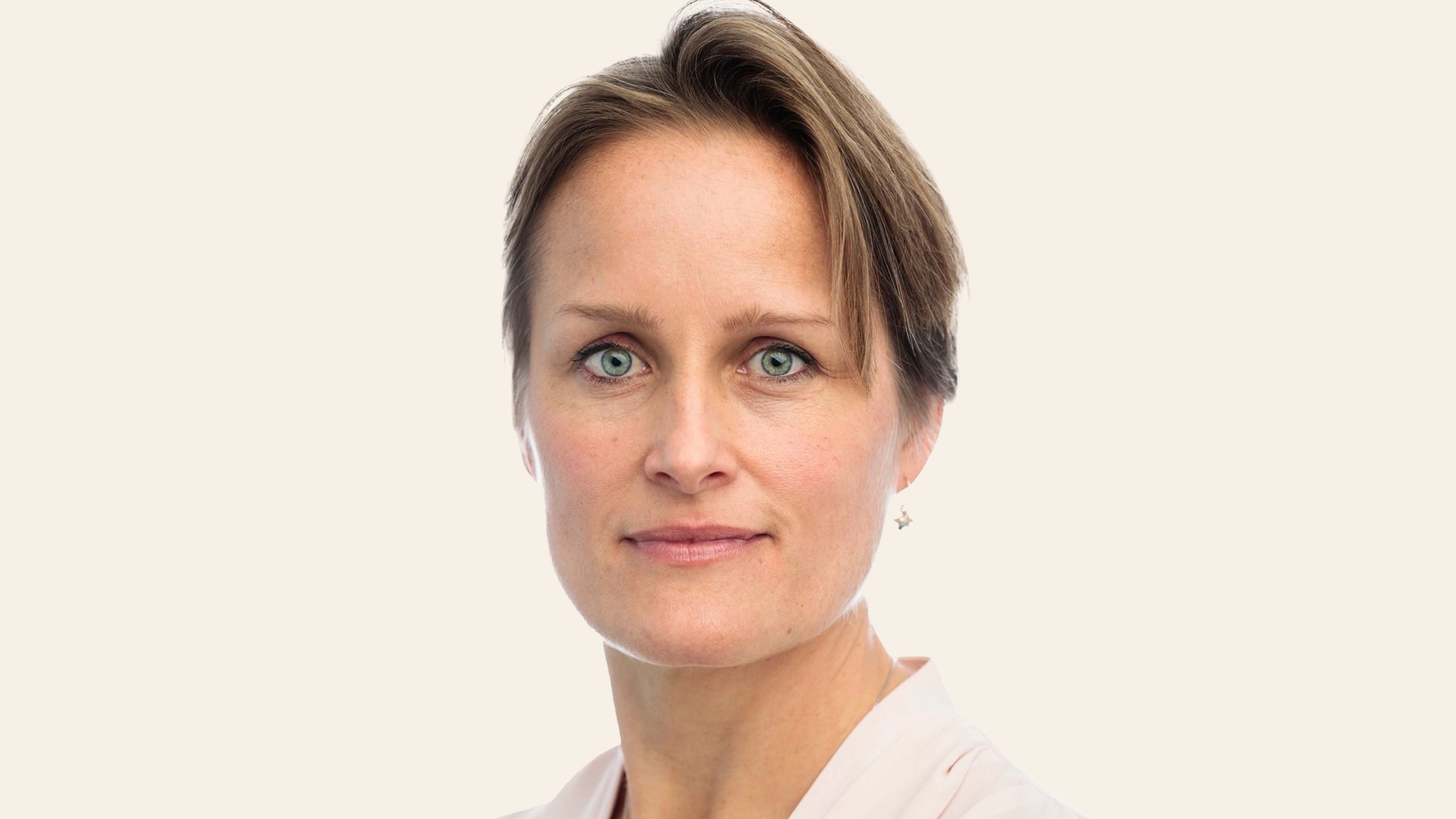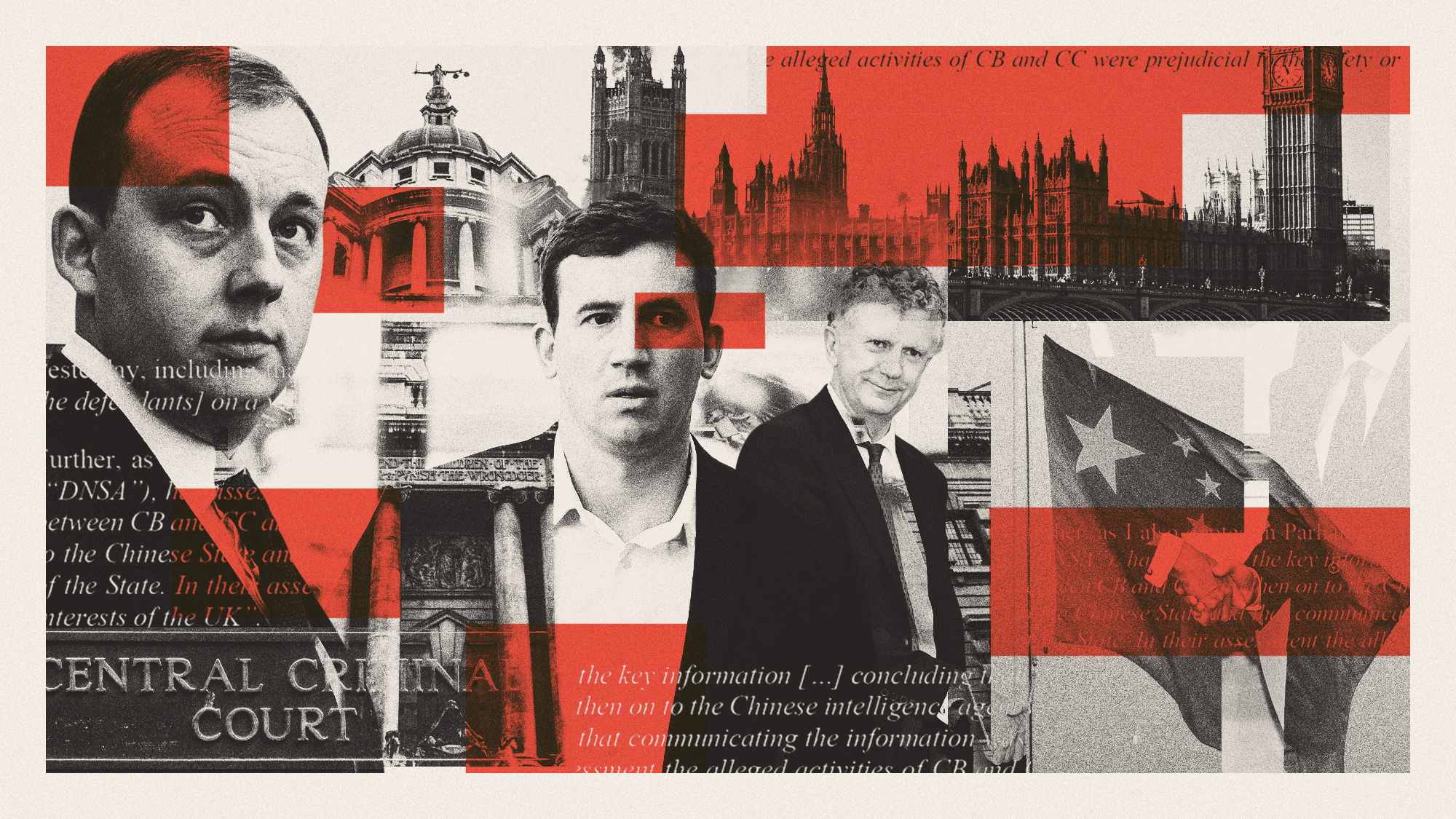Blaise Metreweli: the first female head of MI6
The intelligence service's current technology boss – known as 'Q' – has been revealed as the new chief, or 'C'

A free daily email with the biggest news stories of the day – and the best features from TheWeek.com
You are now subscribed
Your newsletter sign-up was successful
The UK's overseas espionage agency will be led by a woman for the first time since its inception 116 years ago.
Blaise Metreweli has been appointed the new head of the Secret Intelligence Service, known as MI6, 30 years after Judi Dench played a fictional female MI6 chief in the James Bond films. Metreweli, currently head of technology, a position codenamed "Q", will take over from Richard Moore as the 18th chief – or "C" – when he steps down in the autumn after a five-year term. "C" was known as "M" in Ian Fleming's Bond novels and the films.
Keir Starmer, who interviewed the final two candidates, revealed the 47-year-old Metreweli as the new C: the only member of MI6 staff who is ever publicly named. "The historic appointment of Blaise Metreweli comes at a time when the work of our intelligence services has never been more vital," the prime minister said in a statement.
The Week
Escape your echo chamber. Get the facts behind the news, plus analysis from multiple perspectives.

Sign up for The Week's Free Newsletters
From our morning news briefing to a weekly Good News Newsletter, get the best of The Week delivered directly to your inbox.
From our morning news briefing to a weekly Good News Newsletter, get the best of The Week delivered directly to your inbox.
Who is Blaise Metreweli?
Metreweli, a Cambridge graduate with a 26-year career in intelligence, has been "the internal frontrunner for several years and has been groomed for the top job", said The Times. Colleagues describe her as "astute, intelligent with a streak of toughness".
In her time as the first female Q – one of four director-generals in MI6 – she has "championed under-represented groups", particularly neurodiverse people. She is said to be "very interested in artificial intelligence and its potential role in espionage".
According to the "brief biographical details given in the announcement", said The Guardian, Metreweli studied social anthropology and initially applied to work as a diplomat, before joining MI6 in 1999. She has spent much of her career in operational roles in the Middle East and Europe.
In a 2022 interview with the Financial Times, in which she was quoted under the pseudonym Ada, Metreweli said that being a spy was the only job she'd ever wanted. As a child, she learned a cipher system called pigpen code and used it with her friends to leave notes under flower pots.
A free daily email with the biggest news stories of the day – and the best features from TheWeek.com
A self-confessed "geek", she said that her first job in counter-proliferation gave her the chance to engage with the "really deep science" of nuclear technology, and form "incredibly close relationships" with overseas agents who "were risking their lives to be able to share secrets with us".
"Tall and athletic with cropped blonde hair", Metreweli has "a penchant for large glittering brooches in the shape of insects", said the paper. These "tend to draw anxious looks from industry contacts who suspect a camera or microphone hidden within".
MI6: the 'odd exception'
Metreweli is of Eastern European heritage, but is said to be an excellent Arabic speaker. Her expertise regarding the Middle East will be "particularly relevant given the current conflict between Israel and Iran", said the Financial Times yesterday. But "one of her main challenges" will be managing the agency's "changing relations" with the CIA, amid "diverging security interests" under Donald Trump.
She might find common ground with Gina Haspel, who was appointed the CIA's first female director in 2018.
The "historical paucity of female representation" in senior MI6 roles has also improved; three of the four current director-generals below Moore are women: Metreweli, the head of operations and the head of strategy. But Margaret "Meta" Ramsay, who worked as an intelligence officer until her retirement in the 1990s, said that MI6 was "beginning to be an odd exception among national intelligence agencies" for never having been led by a woman.
MI5, the UK's domestic intelligence agency, has had two female director-generals: Stella Rimington, from 1992 to 1996, and Eliza Manningham-Buller. Metreweli has also worked as a director at MI5, according to Sky News. Of the other main spy agencies, GCHQ is also under the command of a woman for the first time; Anne Keast-Butler took on the role in 2023.
Metreweli said she was "proud and honoured" to be appointed C, and looked forward to continuing her work "alongside the brave officers and agents of MI6 and our many international partners".
Harriet Marsden is a senior staff writer and podcast panellist for The Week, covering world news and writing the weekly Global Digest newsletter. Before joining the site in 2023, she was a freelance journalist for seven years, working for The Guardian, The Times and The Independent among others, and regularly appearing on radio shows. In 2021, she was awarded the “journalist-at-large” fellowship by the Local Trust charity, and spent a year travelling independently to some of England’s most deprived areas to write about community activism. She has a master’s in international journalism from City University, and has also worked in Bolivia, Colombia and Spain.
-
 How the FCC’s ‘equal time’ rule works
How the FCC’s ‘equal time’ rule worksIn the Spotlight The law is at the heart of the Colbert-CBS conflict
-
 What is the endgame in the DHS shutdown?
What is the endgame in the DHS shutdown?Today’s Big Question Democrats want to rein in ICE’s immigration crackdown
-
 ‘Poor time management isn’t just an inconvenience’
‘Poor time management isn’t just an inconvenience’Instant Opinion Opinion, comment and editorials of the day
-
 Why did the China spying case collapse?
Why did the China spying case collapse?Today’s Big Question Unwillingness to call China an ‘enemy’ apparently scuppered espionage trial
-
 Are the UK and Russia already at war?
Are the UK and Russia already at war?Today's Big Question Moscow has long been on a 'menacing' war footing with London, says leading UK defence adviser
-
 How will the MoD's new cyber command unit work?
How will the MoD's new cyber command unit work?Today's Big Question Defence secretary outlines plans to combat 'intensifying' threat of cyberattacks from hostile states such as Russia
-
 The secret lives of Russian saboteurs
The secret lives of Russian saboteursUnder The Radar Moscow is recruiting criminal agents to sow chaos and fear among its enemies
-
 Is the 'coalition of the willing' going to work?
Is the 'coalition of the willing' going to work?Today's Big Question PM's proposal for UK/French-led peacekeeping force in Ukraine provokes 'hostility' in Moscow and 'derision' in Washington
-
 Is it safe to share state secrets with the US?
Is it safe to share state secrets with the US?Today's Big Question Accidental top-level leak stokes security concerns from America's allies
-
 Russia's spies: skulduggery in Great Yarmouth
Russia's spies: skulduggery in Great YarmouthIn the Spotlight 'Amateurish' spy ring in Norfolk seaside town exposes the decline of Russian intelligence
-
 Is the British Army ready to deploy to Ukraine?
Is the British Army ready to deploy to Ukraine?Today's Big Question The UK 'would be expected to play a major role' if a peacekeeping force is sent to enforce ceasefire with Russia